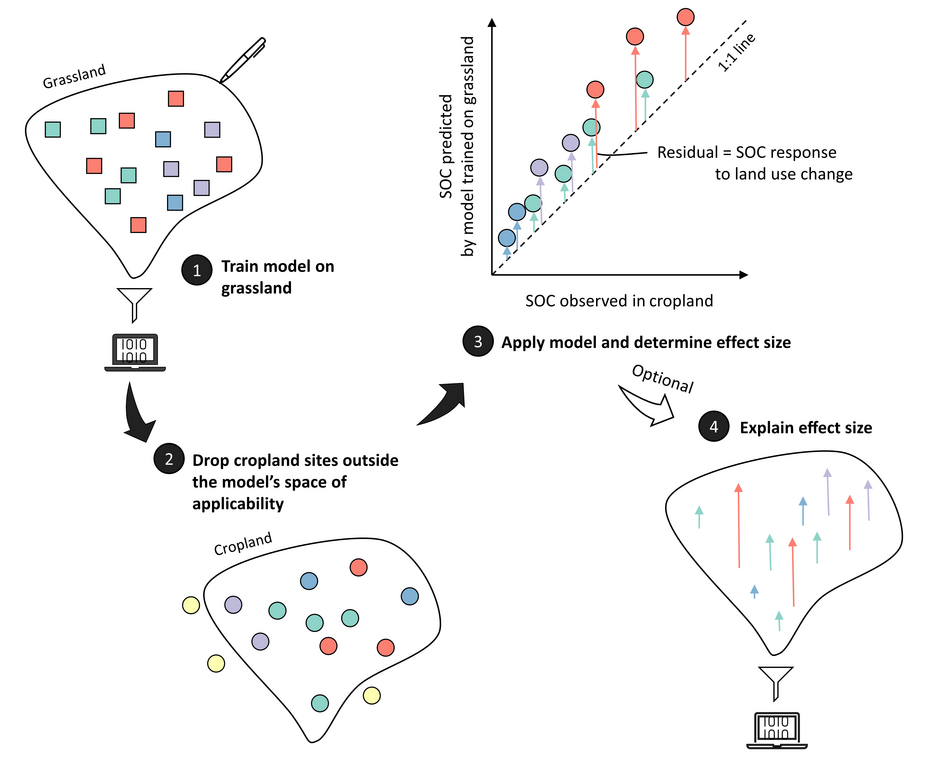Treatment effects are traditionally quantified in controlled experiments. However, experimental control is often achieved at the expense of representativeness. Here, we present a data-driven reciprocal modelling method to quantify the individual effects of environmental treatments under field conditions. In a case study, we apply the method to estimate the site-specific response of soil organic carbon to land-use change. All the method requires is a representative survey data set that relates values of a chosen target variable (here, soil organic carbon) to values of the studied treatment (here, land use) along with values of other potential explanatory variables (here, soil, climate, geology and management variables).
Scroll to top

![[Translate to English:] [Translate to English:]](/media/_processed_/6/4/csm_titel_CO2Kampagne8_afeea2273e.png)
![[Translate to English:] [Translate to English:]](/media/_processed_/4/1/csm_titel_93px_CO2Kampagne8_9b0f3354d4.png)





